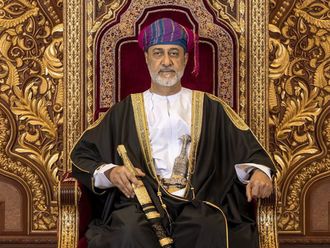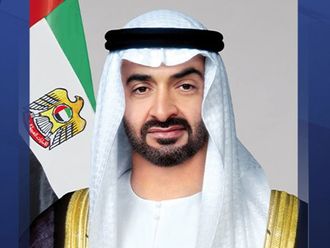Abu Dhabi: President His Highness Shaikh Khalifa Bin Zayed Al Nahyan issued three federal decrees on the UAE’s accession to the three protocols of the Biological Diversity Convention.
The three decrees include federal decree No 77 of 2014 on the UAE’s accession to the Cartagena Protocol on Biosafety, federal decree No 75 of 2014 on accession to the Nagoya Kuala Lumpur Supplementary Protocol on Liability and Redress to the Cartagena Protocol on Biosafety.
Federal Decree No 76 of 2014 states the UAE’s accession to the Nagoya Protocol on Access to Genetic Resources and the Fair and Equitable Sharing of Benefits Arising from their Utilisation.
Shaikh Khalifa also issued another federal decree concerning the appointment of Dr Mohammad Mattar Salem Al Kaabi as Chairman of the General Authority for Islamic Affairs and Endowments, with the grade of Ministry Undersecretary.
According to the decree, all competent authorities should implement this decree, which cancels any provision which may be inconsistent with it. The decree will be published in the official gazette and takes effect from the date of issuance
Dr Rashid Ahmad Bin Fahd, Minister of Environment and Water, said accession to these protocols is in line with the UAE vision 2021, and boosts the country’s international competitive indicators, and the ministry’s strategy for 2014-2016 on promotion of environmental sustainability within the management and protection initiative of ecosystems.
Bin Fahd said that the ministry will work in the next phase on cooperation and coordination with partners to prepare the necessary plans to activate the implementation of the three protocols, with particular emphasis on the preparation of laws and regulations and awareness programmes and capacity building, in addition to the proposal of institutional mechanisms that ensure effective implementation of the three protocols.
The UAE joined the Convention on Biological Diversity under Federal Decree No 107 of 1999. The three protocols represent all protocols emanating from the Convention.
This international treaty provides a framework, based on the precautionary principle, for the safe transfer, handling and use of living modified organisms (LMOs) resulting from modern biotechnology that may have adverse effects on the conservation and sustainable use of biological diversity, or pose risks to human health.
The Biosafety Protocol seeks to protect biological diversity from the potential risks posed by genetically modified organisms resulting from modern biotechnology.
The Biosafety Protocol makes clear that products from new technologies must be based on the precautionary principle and allow developing nations to balance public health against economic benefits.










